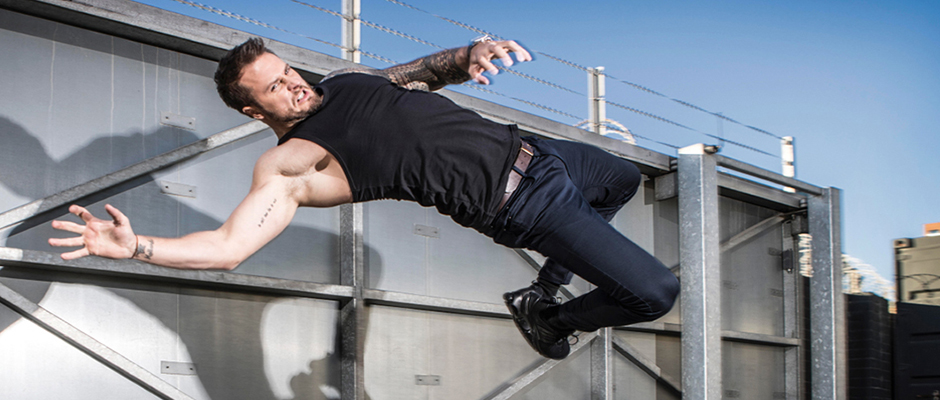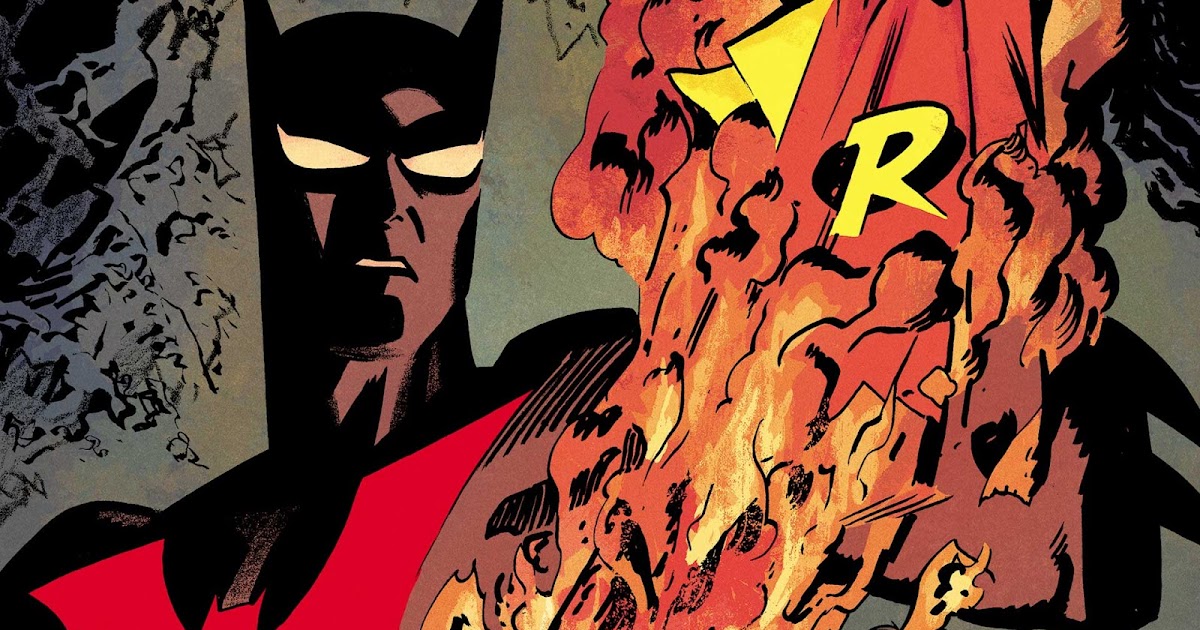Batman's Conflict with the Law in Dark Knight

Batman's Conflict with the Law in Dark Knight
In the world of superheroes, Batman has always been seen as a symbol of justice and integrity. However, in the movie Dark Knight, we see a different side of the caped crusader as he grapples with a moral dilemma – whether to abide by the law or take matters into his own hands.
The conflict between Batman and the law begins when the new district attorney, Harvey Dent, launches a crusade against the city's organized crime. Batman, with his unconventional methods and vigilante actions, becomes a thorn in Dent's side as they both try to bring peace to Gotham City.
The Ethical Dilemma
As Batman struggles to stay true to his principles and fight crime without crossing the line, he faces criticism from both the general public and the law. On one hand, the citizens of Gotham see him as a hero, but on the other hand, the police and the government view him as a dangerous vigilante who is above the law.
This ethical dilemma is also evident in the actions of Harvey Dent, who at one point even calls Batman a "disease." Dent firmly believes in the rule of law and sees Batman as a threat to the justice system. However, as the movie progresses, his stance on the law begins to unravel, and he becomes the villain Two-Face.
The Line Between Good and Evil
The central theme of Dark Knight revolves around the blurred line between good and evil, and how Batman's actions and society's perception of him influence this line. The Joker, the antagonist in the movie, constantly challenges Batman's morality and pushes him to break his code of ethics.
But Batman, being the symbol of hope and justice, never wavers. He continues to fight for what he believes in, despite the mounting pressure from the law and the public. He understands that his actions may have consequences, but he's willing to accept them for the greater good of the city.
The Greater Good
Batman's conflict with the law ultimately comes down to the question - what is more important, upholding the law or protecting the people? In the movie, we see Batman going against the law to save the lives of innocent people. He understands that sometimes sacrifices must be made, and sacrifices mean breaking a few rules along the way.
As the movie comes to an end, we see Batman taking the blame for Dent's actions to preserve the image of the law and the district attorney. He realizes that for the greater good, he must sacrifice his own reputation and become the villain in the eyes of the law.
The Ultimate Hero
In the end, Batman remains an enigma – a conflicted hero who is willing to do whatever it takes to save his city. He challenges our perception of right and wrong, and in doing so, he shows us that sometimes, the law is not enough to bring about justice.
So, as we watch Dark Knight, we are left with a question – was Batman a criminal or a hero? Perhaps the answer lies somewhere in between, where the law and morality intersect, and where Batman continues to fight for the greater good, regardless of the consequences.
Batman's Arch Nemesis: The Joker in Dark Knight

Batman's Arch Nemesis: The Joker in Dark Knight
The Dark Knight is often hailed as one of the best superhero movies of all time. And at the heart of this masterpiece is one of the most iconic comic book villains, The Joker. Played brilliantly by the late Heath Ledger, The Joker serves as Batman's arch-nemesis, creating chaos and terror in Gotham City.
But what makes The Joker such a compelling and formidable foe for Batman? Let's take a closer look at this enigmatic character and his role in The Dark Knight.
The Man Behind the Madness
The Joker's origin story varies in different iterations of the Batman universe. In The Dark Knight, he is portrayed as a psychopathic criminal mastermind with no definitive past. He is a maniacal force of nature, driven by his desire to sow chaos and destroy Batman's moral code.
His signature makeup and scars are not the only twisted aspects of his appearance. His unsettling behavior and unpredictability make him truly chilling to watch. With every cackle and twisted smile, The Joker becomes more and more terrifying.
The Perfect Antithesis to Batman
Batman is known for his strict moral code and his unwavering pursuit of justice. The Joker, on the other hand, thrives on chaos and has no moral compass. They are the perfect opposite of each other, making their dynamic in The Dark Knight all the more compelling.
The Joker constantly challenges Batman's beliefs and forces him to confront his own flawed humanity. He tests Batman's limits and pushes him to the brink of breaking his moral code. It is this constant battle between good and evil that makes The Joker and Batman's rivalry so captivating.
A Master Manipulator
One of The Joker's greatest strengths is his ability to manipulate others. He knows exactly how to push people's buttons and manipulate them to do his bidding. In The Dark Knight, he uses his cunning tactics to turn the citizens of Gotham against Batman and the police force.
He also manages to manipulate the conflicted Harvey Dent, ultimately leading to his downfall and transformation into the villain Two-Face. The Joker's masterful manipulation makes him a formidable opponent for Batman to face.
A Legacy That Lives On
Although Heath Ledger's performance as The Joker is often praised as one of the best in cinematic history, it is not the only interpretation of the character. The Joker has been portrayed by several actors, each bringing their own unique take on the character.
From Jack Nicholson's iconic portrayal in Tim Burton's Batman to Joaquin Phoenix's Oscar-winning performance in Joker, The Joker continues to leave a lasting impact on audiences. His legacy lives on through various mediums, proving that he is truly one of the greatest villains in pop culture.
In conclusion, The Joker in The Dark Knight solidifies his position as one of the greatest comic book villains of all time. With his chaotic nature, manipulative tactics, and enigmatic persona, he is the perfect foil for Batman's crusade for justice. Heath Ledger's unforgettable performance and the legacy of the character only add to his iconic status.
The Dark Knight's Moral Code: Is He a Hero or Villain?
The Dark Knight's Moral Code: Is He a Hero or Villain?
When it comes to the iconic character of the Dark Knight, also known as Batman, opinions are divided. Some see him as a symbol of hope and justice, while others view him as a vigilante and a criminal. But the question remains: is the Dark Knight a hero or a villain?
The Origins of the Dark Knight
The Dark Knight is the alter-ego of Bruce Wayne, a billionaire who witnessed the murder of his parents as a child. Driven by his need for vengeance and justice, Wayne trained his mind and body to become a skilled fighter and detective. He then took on the mantle of the Dark Knight, using his resources and abilities to fight crime in the fictional city of Gotham.
But what sets the Dark Knight apart from other superheroes is his lack of superpowers. He is just a man with immense wealth and determination, using his intellect and gadgets to combat evil. This makes him more relatable and human, but also raises questions about the methods he uses to achieve his goals.
The Gray Area of Morality
The Dark Knight operates in a world where the line between good and evil is blurred. He is faced with tough decisions, and the consequences of his actions are not always black and white. This raises the question of whether his moral code is truly heroic or villainous.
On one hand, Batman has a strict no-kill rule. He refuses to take a life, no matter how heinous the crime. This sets him apart from other vigilantes and shows that he values every human life, even those of his enemies. However, this also means that he often puts himself and others in danger by letting criminals live to possibly strike again.
On the other hand, Batman operates outside of the law. He often breaks laws and uses fear and intimidation to get his way. He also keeps tabs on his fellow superheroes and has contingency plans in case they turn against humanity. This raises questions about the limits of his morality and whether he has the authority to act as judge and jury.
The Greater Good
Despite his flaws, the Dark Knight's ultimate goal is to protect the innocent and make Gotham a safer place. He puts his own life at risk to save others and is willing to make sacrifices for the greater good. This selflessness and dedication to his cause are traits of a true hero.
At the same time, Batman's methods have also led to unintended consequences. His actions have sometimes created more chaos and violence, and his obsession with justice has caused him to alienate those closest to him. This shows that even with good intentions, there can be consequences that blur the line between hero and villain.
The Conclusion
Is the Dark Knight a hero or a villain? The truth is, he is both. He has the qualities of a hero – determination, selflessness, and a desire to do good. But he also has traits that can be perceived as villainous – breaking laws, using fear to his advantage, and morally questionable decisions.
Ultimately, the Dark Knight's moral code depends on one's perspective. But what is undeniable is his impact on popular culture and his enduring message of hope and justice. So let us continue to debate and discuss the Dark Knight's morality, but also remember the lessons he teaches us about what it means to be a hero.
Small Image attribution: Source: Pixabay, user Marc Gloury
About
Welcome to JinnJot.com, your go-to hub for a wide range of captivating blogs! Whether you're curious about the latest in finance, fascinated by geology, pondering deep philosophical questions, or just want to explore the realms of religion, culture, sports, and entertainment, JinnJot has it all. It's a vibrant space where ideas come to life, and every topic is an adventure. Dive in, discover something new, and join the conversation—because at JinnJot.com, there's always more to explore!
-Djinn






